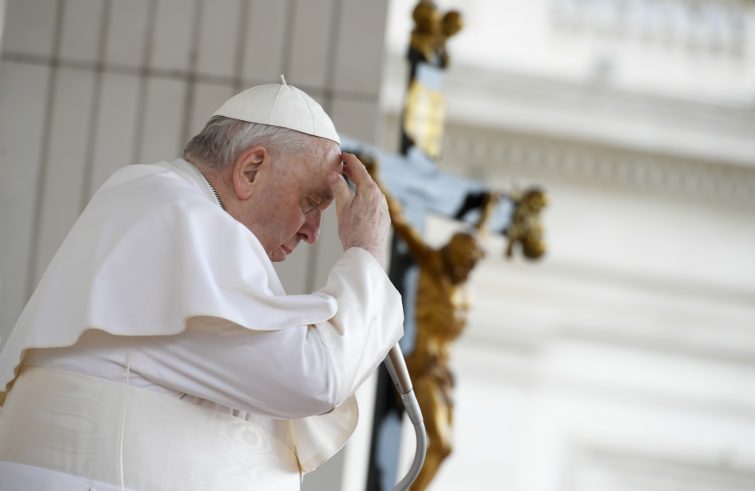
Saint Paul VI’s masterpiece Evangelii nuntiandi “is the magna carta of evangelization in the contemporary world”, that the faithful should “read and re-read” given its contemporary relevance, as if it were written yesterday, Pope Francis said in today’s catechesis for the general audience in St. Peter’s Square, devoted to the theme of apostolic zeal. “Evangelization is more than just simple doctrinal and moral transmission. It is, first and foremost, witness”, the Pope said. “The opposite of witness is hypocrisy”, he denounced: “Many Christians only say they believe, but they live something else, as if they did not.” In fact, witness “cannot be separated from consistency between what one believes and what one proclaims, and what one lives.” Every one of us is required to respond to three fundamental questions, posed in this way by Paul VI: ‘Do you believe what you are proclaiming? Do you live what you believe? Do you preach what you live?’
“If the Church does not evangelize herself, she remains a museum piece,
instead, it is by evangelizing herself that she is continually updated”, Francis added off text: “We must be aware that the people to whom evangelization is addressed are not only others, those who profess other faiths or who profess none, but also ourselves, believers in Christ and active members of the People of God. And we must convert every day, receive the word of God and change our life: every day. And this is how the heart is evangelized.” The Church “is a People of God immersed in the world, and often tempted by idols nd she always needs to hear the proclamation of the works of God.”
“A Church that evangelizes herself in order to evangelize is a Church that, guided by the Holy Spirit, is required to walk a demanding path, a path of conversion and renewal”,
Francis remarked. “This also entails the ability to change the ways of understanding and living its evangelizing presence in history, avoiding taking refuge in the protected zones of the logic of ‘it has always been done this way’.” “They are the refuges that cause the Church to sicken. The Church must go forward, she must grow continually; in this way she will remain young.” The Pope added in unscripted remarks: “The Church must be a Church that dialogically encounters the contemporary world, that weaves fraternal relationships, that generates spaces of encounter, implementing good practices of hospitality, of welcome, of recognition and integration of the other and of otherness, and that cares for the common home that is creation.”
“Without the Holy Spirit we can only publicize the Church, not evangelize,”
The Pope remarked: “It is the Spirit in us that drives us towards evangelization” – he added off test “and this is the true freedom of the children of God.” Finally, Francis called on the faithful “to read and re-read Evangelii nuntiandi”: “I read it often, because it is Saint Paul VI’s masterpiece, it is the legacy he left to us, to evangelize.” At the end of the audience, the Pope made an appeal marking World Water Day – “Water cannot be wasted and abused or a cause for war” – with an invitation to renew every 25 March “the act of consecration to Our Lady, “so that she, who is Mother, may preserve us all in unity and peace.” “And let us not forget, in these days, troubled Ukraine, who is suffering so much”, he concluded from St. Peter’s Square.










